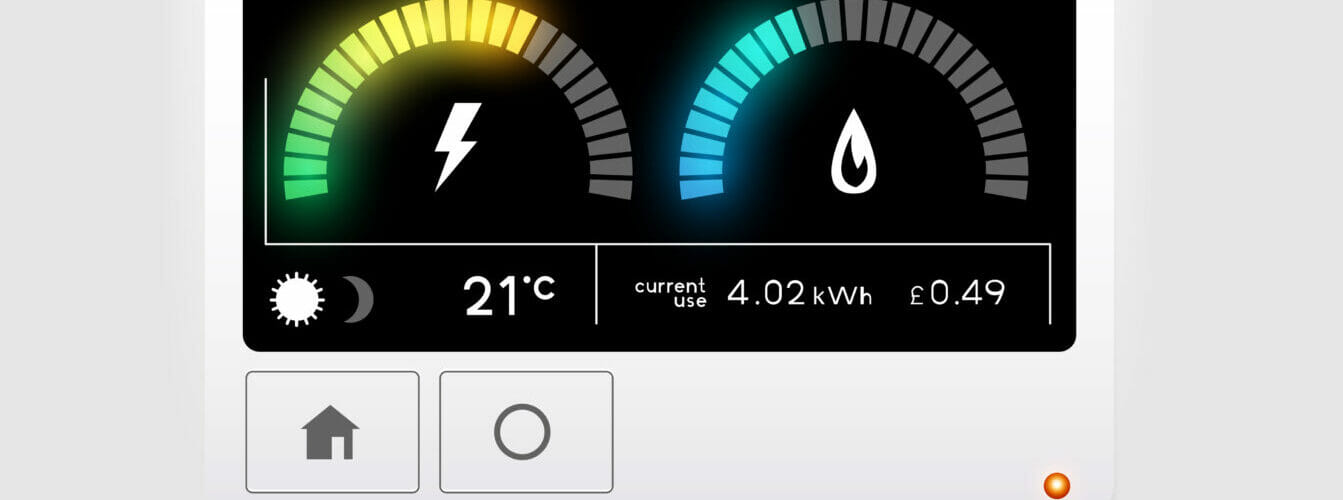More than 350,000 smart meters were remotely manipulated to increase British home’s energy bills within the last six years, revealed by The Telegraph on Tuesday, in order to repay prior debt.
The WinePress has reported on the problems surrounding smart meters in previous posts:
- Virginia Energy Company Cuts Off Power For Nearly Two Dozen Households That Refuse To Use Smart Meters
- 22,000 People In Colorado Were Locked Out Of Their Smart Meters During ‘Energy Emergency’
- Texan Smart Thermostats Were Remotely Adjusted Without Homeowners Realizing It
- California Utility Company Illegally Shares Smart Meter Data To Police To Try And Crackdown On Potential Crime
The Telegraph provides more of the details:
[This] comes as Ofgem, the energy regulator, is set to bring in new rules setting a “minimum standard” that limits when firms can forcibly change a customer’s tariff. Campaigners are also calling on the Government to outlaw the practice altogether.
The number of remote switches rose fivefold in the five years to 2021, but dropped 61pc in 2022 to 58,977 from over 152,000 the year before, according to official figures, as the Government stepped in to shield consumers from surging costs by raising the energy price cap and introducing the Energy Price Guarantee.
Britain’s smart meter rollout has been billed as a cost-saver for households by its supporters, but has saddled billpayers with three million “dumb” devices that can no longer submit automatic readings to suppliers.
Energy providers have faced criticism for using smart meters to remotely force indebted customers onto more costly prepayment meters without a warrant, which is required to enter a home and manually install one.
Gillian Cooper, head of energy policy at charity Citizens Advice, said:
As energy bills rocketed last year, far too many people were forced onto a prepayment meter they couldn’t afford to keep topped up – often despite clear evidence they could suffer harm if their credit ran out.
Ofgem’s code of practice is a much-needed improvement in the protections people have against forced installations, including remote switches…These protections must be in place by winter or history could repeat itself.
Prepayment tariffs are on average £21 a year more expensive than ordinary meter tariffs, according to Department of Energy Security and Net Zero, which announced this month that it would fund an elimination of prepayment premiums until April 2024, when Ofgem is expected to bring in further measures scrapping them permanently.
In February, Ofgem imposed a temporary ban on forced switches ahead of updating its code of practice, under which suppliers will be required to make at least 10 attempts to contact a customer before making an involuntary switch and conduct a welfare visit before doing so.
Suppliers are also banned from carrying out involuntary installations of prepayment meters for customers who are over the age of 85 and those who require a continuous supply of energy for health reasons. Installers must also wear body cameras and apply £30 of credit after a meter has been switched either remotely or in-person.
In a year marked by the cost of living crisis, 4,914 people on average were remotely switched to prepayment meters every month of 2022, according to figures obtained under the Freedom of Information Act. The most remote switches occurred in the three months from July to September, which saw just over 16,758 in total.
Campaigners have said that the latest rules do not go far enough and called on the Government to enact an outright ban on the practice of involuntarily switching customers’ meters.
Simon Francis, coordinator of the End Fuel Poverty Coalition, said: “We know that the majority of smart meter switches to PPM mode take place due to debt. This highlights the need for the Government working with charities and energy firms to develop a ‘help to repay’ scheme for the nation’s surging levels of household energy debt.
Switching a smart meter to prepayment mode without a customers’ explicit and informed consent is as good as forcing them to self-disconnect… the Government must amend the Energy Bill to ban forced switching to traditional or smart prepayment meters when the legislation comes back to the House of Commons in September.
While it is not clear what proportion of remote switches since 2017 were involuntary, as opposed to voluntary switches where the customer agrees or requests the change, the quarterly number of switches fell by 40pc on the 2022 average during the first three months of 2023 when the moratorium on forcing PPMs on customers came into effect.
The total number of remote switches between 2017 and the first quarter of 2023 was 354,118, according to Ofgem’s figures.
Households that cannot afford to top up their meter risk being disconnected from their power entirely and suppliers are able to dock outstanding debt from the top ups.
The switches, which have been criticised by charities, are now expected to become less common as more rules are brought in.
Jonathan Brearley, Ofgem’s chief executive, said in April that:
We expect the overall number of involuntary prepayment meter installations will fall over time, and we recognise that a careful balance is required to help manage debt, while protecting customers in vulnerable situations.
A spokesman for the watchdog added:
Protecting consumers is our top priority which is why we brought in a Code of Practice on prepayment meter (PPM) earlier this year – signed up to by all energy suppliers. This is currently being enshrined into licensing rules and regulations.
Even before this, a voluntary pause on forced prepayment meters was already in place, and, as we said when we announced the Code of Practice, where this is not being adhered to by companies, we will always take the necessary action.
A spokesman for Energy UK, which represents energy firms, said:
Earlier this year, suppliers voluntarily halted prepayment meter installations under warrant – including remote switches where a smart meter is changed to prepayment mode – to review their own practices whilst Ofgem also carried out its own investigation.
The pause remains in place until that process is concluded. When installations resume, a new Code of Practice, agreed between suppliers and Ofgem, will strengthen the process and assessments surrounding prepayment meter installations and remote switches – particularly when identifying if this may not be safe for vulnerable customers.
Prepayment meters will remain an important way of helping customers manage their own energy costs and usage. Suppliers are required to try and prevent customers from falling further into arrears and to minimise the build of bad debt which is ultimately recouped from all customers.
AUTHOR COMMENTARY
The devices may be “smart” but you’d be dumb to get one.
As noted in this report, I’ve documented just some of the examples why you should not and cannot get a smart meter. Not only will they not save you money, it gives the government and energy companies unbridled power to manipulate your services on a whim, versus just shutting you off completely.
The powers at be want the smart meters because this is a dark horse to the whole smart city and CBDC agenda. Since everything will be linked to a digital ID and social credit score, all the devices in the home need to be “smart” too, and therefore interlinked with the social credit score. If you misbehave, they lower your heat or turn off your stove, or increase usage if you are a good global citizen.
SEE: Trivergence: The Trifecta Of Totalitarian Control And AI Enslavement
[15] He made a pit, and digged it, and is fallen into the ditch which he made. [16] His mischief shall return upon his own head, and his violent dealing shall come down upon his own pate. Psalms 7:15-16
[7] Who goeth a warfare any time at his own charges? who planteth a vineyard, and eateth not of the fruit thereof? or who feedeth a flock, and eateth not of the milk of the flock? [8] Say I these things as a man? or saith not the law the same also? [9] For it is written in the law of Moses, Thou shalt not muzzle the mouth of the ox that treadeth out the corn. Doth God take care for oxen? [10] Or saith he it altogether for our sakes? For our sakes, no doubt, this is written: that he that ploweth should plow in hope; and that he that thresheth in hope should be partaker of his hope. (1 Corinthians 9:7-10).
The WinePress needs your support! If God has laid it on your heart to want to contribute, please prayerfully consider donating to this ministry. If you cannot gift a monetary donation, then please donate your fervent prayers to keep this ministry going! Thank you and may God bless you.







